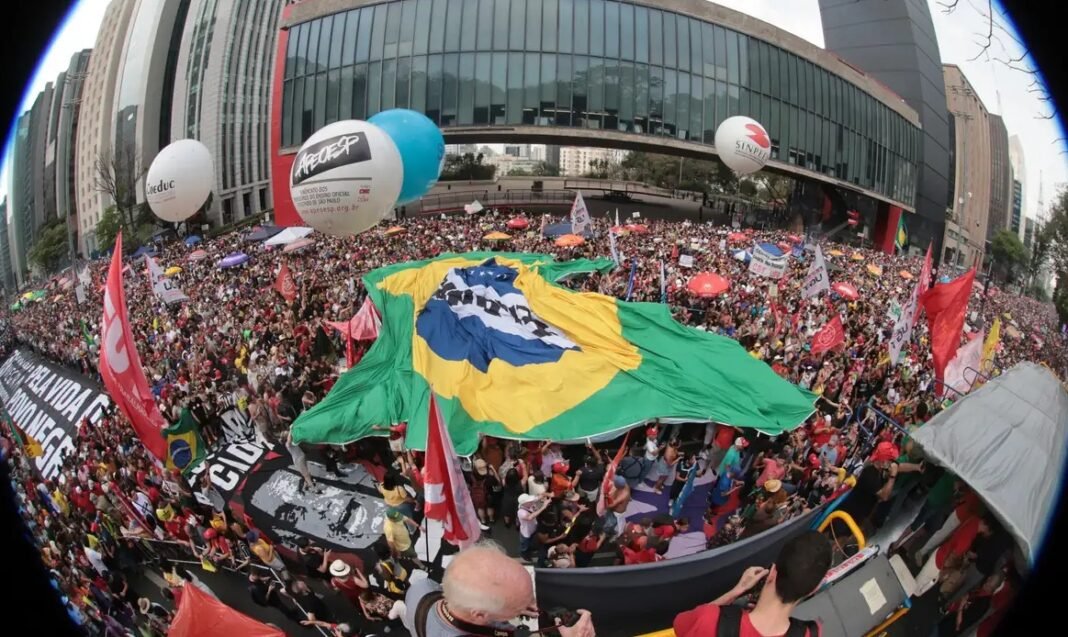Brazil’s political and institutional landscape faces mounting turbulence, with simultaneous developments testing the country’s governance and democratic resilience. A Federal Supreme Court report has exposed evidence of irregularities in Pix amendments across nine municipalities, leading to a suspension of transfers. At the same time, nationwide demonstrations against the Shielding Amendment (PEC) and the proposed amnesty for January 8 coup plotters have intensified political friction, raising doubts about the viability of these measures in Congress. While the PEC now advances to the Senate amid widespread resistance, the government also confronts internal pressures, such as the imminent departure of Tourism Minister Celso Sabino, which has opened a dispute for control of the ministry. These overlapping episodes illustrate both the institutional checks on controversial proposals and the challenges of maintaining political stability ahead of the 2026 election cycle.
This Content Is Only For Subscribers
To unlock this content, subscribe to INTERLIRA Reports.
Suspicious Amendments
Minister Flávio Dino of the Federal Supreme Court (STF) submitted a report to the Federal Police on Monday (15/09) indicating that nine out of the ten municipalities receiving the largest share of Pix amendments between 2020 and 2024 show signs of irregularities in how the funds were allocated. In response, Dino also ordered the federal government to suspend transfers to these municipalities, which together amount to R$671 million. The cities under suspicion are Carapicuíba (SP), Macapá (AP), São Luiz do Anauá (RR), São João de Meriti (RJ), Iracema (RR), Rio de Janeiro (RJ), Sena Madureira (AC), Camaçari (BA), and Coração de Maria (BA). The report signals growing scrutiny over how federal resources are being directed and used.
Demonstrations
Public discontent translated into large-scale street protests on Sunday (21/09), when more than 80,000 people gathered in Rio de Janeiro and São Paulo to oppose both the Shielding Amendment (PEC) and the proposed amnesty for coup plotters. Demonstrations were also held in all 25 other state capitals, reflecting widespread concern with recent congressional initiatives. Organized by supporters of the Lula administration, social movements, and artists, the mobilizations directly targeted lawmakers from the Centrão and allies of former President Jair Bolsonaro (PL), who are seen as key backers of the contested proposals.
Final Straw
Members of the Lula administration and allied lawmakers interpreted the protests as the decisive moment against the amnesty plan for January 8 coup participants and Jair Bolsonaro himself. They argue that disagreements between the Centrão and the PL had already weakened the initiative, with bill rapporteur Paulinho da Força (Solidariedade) attempting to advance a reduced version limited to sentencing. Bolsonaro’s allies, however, refused to accept such a compromise. The demonstrations intensified the political cost of defending the measure, and ministers now expect even Centrão leaders to reconsider their support considering the popular backlash.
Shielding Amendment (PEC)
The Shielding Amendment, already approved in the Chamber of Deputies, now begins its journey in the Federal Senate this week (22/09). Despite moving forward institutionally, the proposal faces broad and bipartisan resistance. Senators from the Workers’ Party, the PL, and the Centrão itself have indicated they will reject the measure by a wide margin. Critics point out that the proposal would make it almost impossible to arrest or sit prosecute lawmakers, while also expanding special protections to party presidents. The measure has been described as politically toxic and unlikely to survive in the Senate.
Ministry of Tourism
Meanwhile, political attention also turns to the cabinet. Tourism Minister Celso Sabino confirmed to President Lula on Friday (19/09) that he intends to step down upon his return from New York on Wednesday (24/09). His departure has opened a new dispute within the government and placed additional pressure on Sports Minister André Fufuca, who belongs to the same party federation. Possible successors include Ana Carla Machado Lopes, the ministry’s executive secretary, although other political forces, such as the PDT, are also vying for greater influence. Discussions over the replacement are already being linked to strategies for the 2026 presidential elections, making the decision especially delicate for Lula.
Analysis:
Brazil’s current political turbulence illustrates the fragility of governance when institutional scrutiny, street mobilization, and coalition disputes converge. The investigation into irregularities in Pix amendments reflects the growing role of the judiciary in curbing misuse of public funds, reinforcing accountability but also creating tension between the Federal Supreme Court and Congress. At the same time, the widespread protests against the Shielding Amendment and the amnesty proposal for January 8 participants reveal how public pressure can decisively reshape the political calculus, raising the cost of supporting measures perceived as threats to democracy and transparency.
The crisis is further compounded by cabinet instability, with the resignation of Tourism Minister Celso Sabino adding another layer of political bargaining at a sensitive moment. The episode exposes the challenges faced by President Lula in balancing the demands of coalition allies while managing the broader agenda of institutional reforms. Together, these developments point to a volatile scenario where governance is shaped as much by external pressures—judicial oversight and public mobilization—as by internal party negotiations, all of which will heavily influence the balance of power heading into the 2026 elections.
Sources: O Globo [1], [2], [3]; A Folha de SP [1], [2]; G1; CBN.




